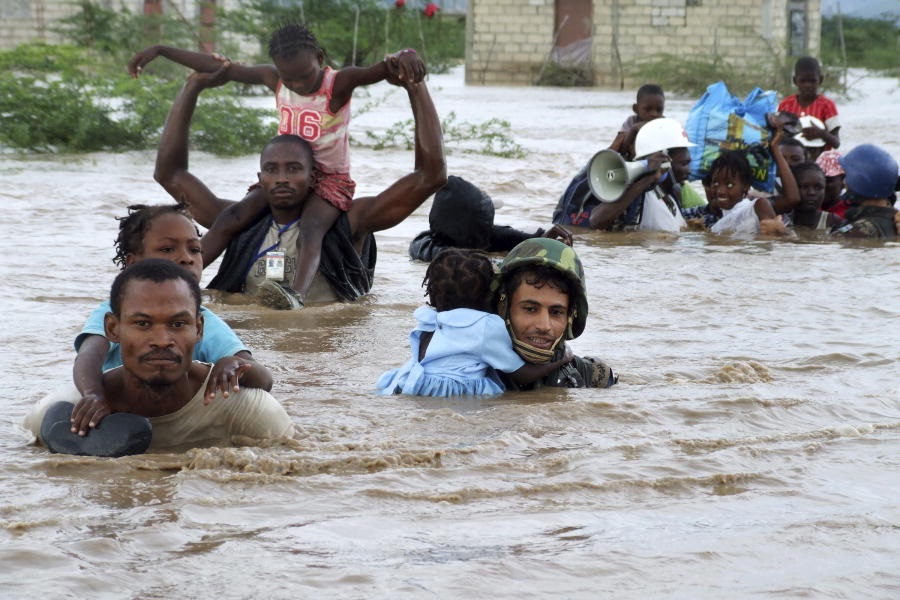New Delhi, July 22:
The World Wildlife Fund (WWF) has submitted to the International Court of Justice (ICJ) to contribute to the Court’s advisory opinion on climate change. The WWF’s submission underscores the legal duty of countries to protect and restore biodiversity, highlighting its critical role in stabilizing the climate.
In March 2023, following a campaign led by Vanuatu, the United Nations General Assembly adopted a resolution requesting an advisory opinion from the ICJ on the obligations of countries to address the climate crisis under international law. The resolution also asked the Court to consider the legal consequences of failing to act.
WWF President International, Adil Najam expressed concern over the global failure to protect nature and the climate, stating on LinkedIn, “The countries of the world are failing the planet. The failure to protect nature and climate is one more aspect of failing to protect our own species, our humanity.”
Najam emphasized that the WWF’s submission highlights the legal obligation of all countries to protect and restore biodiversity, ensuring a livable planet for current and future generations.
Manuel Pulgar-Vidal, WWF Global Climate and Energy Lead, and COP20 President, stated, “There are already legal obligations for countries to tackle the climate crisis, in addition to the economic, social, environmental, and humanitarian imperatives. The Court’s opinion has the potential to establish this in international law with more authority than any previous court ruling on climate change. With most countries falling far short of their obligations to reduce emissions and protect and restore nature, this advisory opinion has the potential to send a powerful legal signal that states need to fulfill their duties to act.”
The WWF hopes to encourage the Court and countries making their own submissions to recognize that nature is a crucial ally in combating climate change and that actions to protect the natural world must occur alongside efforts to reduce emissions.
The submission emphasizes that biodiversity loss hampers humanity’s ability to mitigate the effects of climate change. Certain ecosystems and species play significant roles in CO2 removal and sequestration, and in reducing risks associated with natural disasters exacerbated by climate change.
The WWF also highlights that climate and nature actions are essential to uphold existing international human rights law obligations, including the right to a healthy environment, the right to health and life, the right to an adequate standard of living including food and water, and the right to non-discrimination.
WWF calls on the Court to establish a duty for countries to stop harming nature and adopt the “polluter pays” principle to compensate states that have suffered significant, often irreversible damage from pollution caused by greenhouse gas emissions. WWF also urges all countries to take immediate measures to comply with their international obligations to preserve, protect, and restore biodiversity, and to ensure other countries do the same.
When the ICJ publishes its final opinion, it will add to other significant legal rulings from international and national courts that have underlined the legal obligations of states to act on climate and nature. Recent rulings include the International Tribunal for the Law of the Sea’s advisory opinion on climate change, which found that states have a legal obligation to preserve marine ecosystems, and the European Court of Human Rights’ ruling that human rights are compromised due to a lack of climate action.
Edie Hofmeister, Co-Chair of the International Bar Association (IBA) Business Human Rights Committee, noted, “In the wake of other significant international rulings that we’ve seen this year, including the ITLOS Advisory Opinion on Climate Change and the judgment of the European Court of Human Rights in Verein KlimaSeniorinnen Schweiz and Others v. Switzerland, the ICJ Advisory Opinion represents a further example of international courts being used as a tool to clarify states’ obligations with respect to climate change under international law, and to identify the legal consequences of failing to fulfill such obligations.”
WWF’s submission to the ICJ was assisted by the international law firm Squire Patton Boggs and barristers from 20 Essex Street, Matrix Chambers, Brick Court Chambers, Doughty Street Chambers, and No 5 Chambers.




